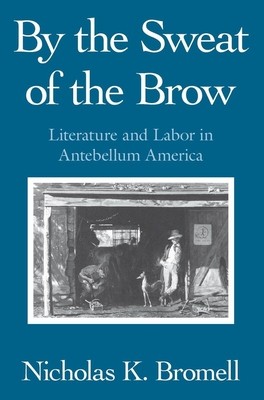
- We will send in 10–14 business days.
- Author: Nicholas K Bromell
- Publisher: University of Chicago Press
- ISBN-10: 0226075559
- ISBN-13: 9780226075556
- Format: 15.4 x 23 x 1.6 cm, softcover
- Language: English
- SAVE -10% with code: EXTRA
Reviews
Description
The spread of industrialism, the emergence of professionalism, and the challenge to slavery fueled an anxious debate about the meaning and value of work in antebellum America.
In chapters on Thoreau, Melville, Hawthorne, Rebecca Harding Davis, Susan Warner, Harriet Beecher Stowe, and Frederick Douglass, Nicholas Bromell argues that American writers generally sensed a deep affinity between the mental labor of writing and such bodily labors as blacksmithing, house building, housework, mothering, and farming. Combining literary and social history, canonical and noncanonical texts, primary source material, and contemporary theory, Bromell establishes work as an important subject of cultural criticism.EXTRA 10 % discount with code: EXTRA
The promotion ends in 17d.17:25:15
The discount code is valid when purchasing from 10 €. Discounts do not stack.
- Author: Nicholas K Bromell
- Publisher: University of Chicago Press
- ISBN-10: 0226075559
- ISBN-13: 9780226075556
- Format: 15.4 x 23 x 1.6 cm, softcover
- Language: English English
The spread of industrialism, the emergence of professionalism, and the challenge to slavery fueled an anxious debate about the meaning and value of work in antebellum America.
In chapters on Thoreau, Melville, Hawthorne, Rebecca Harding Davis, Susan Warner, Harriet Beecher Stowe, and Frederick Douglass, Nicholas Bromell argues that American writers generally sensed a deep affinity between the mental labor of writing and such bodily labors as blacksmithing, house building, housework, mothering, and farming. Combining literary and social history, canonical and noncanonical texts, primary source material, and contemporary theory, Bromell establishes work as an important subject of cultural criticism.

Reviews